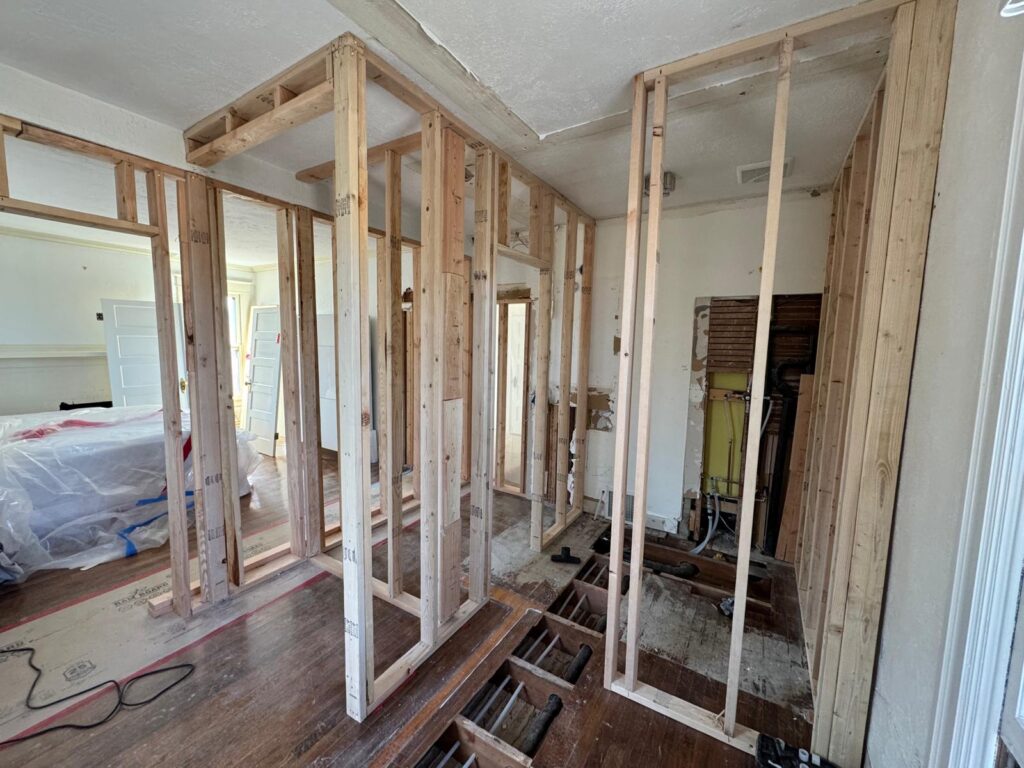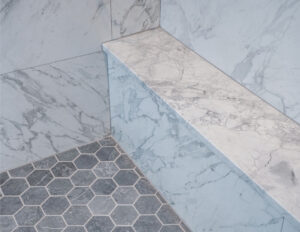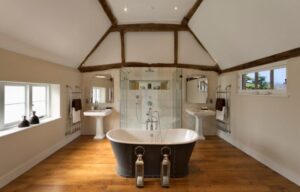Why Local Businesses Are Going Gritty: The Industrial Design Takeover
Okay, let’s talk about something we’ve all noticed lately. Walk down any trendy street in Denver – LoHi, RiNo, even spots in the burbs – and what do you see? Exposed brick. Raw concrete floors. Edison bulbs dangling from black steel pipes. That unmistakable industrial vibe isn’t just for breweries and coffee shops anymore. It’s popping up in bakeries, boutiques, even dentists’ offices (seriously!). Why is everyone suddenly channeling their inner warehouse? Buckle up, because we’re diving into the fascinating world of industrial design’s local business boom.

What Exactly Is Industrial Design Doing Here?
First, let’s clear the air. When we say “industrial design” in this context, we don’t mean designing factories. We mean borrowing the aesthetic – the raw materials, the functional honesty, the stripped-back beauty of old manufacturing spaces – and applying it to modern local businesses. Think less “hard hat required,” more “cool, intentional edge.”
- It Screams Authenticity: In a world drowning in digital gloss, people crave realness. Exposed ductwork? Unvarnished wood? Visible brick? It tells a story. It whispers (or maybe shouts), “We’re not hiding anything. This is genuine.” Customers eat that up. It feels grounded, local, and trustworthy – the exact opposite of sterile, corporate blandness. IMO, it’s a masterclass in building brand identity without saying a word.
- It’s Surprisingly Budget Savvy (Sometimes): Okay, don’t get us wrong – high-end industrial finishes exist. But often, the charm comes from not over-finishing. Leaving a concrete floor polished instead of covering it? Using reclaimed wood instead of expensive new cabinetry? Repurposing old factory fixtures? That can translate to significant savings compared to more ornate traditional builds. It’s resourceful, and hey, resourcefulness is cool.
- Durability is Built-In: Let’s be real: local businesses take a beating. High traffic, spills, constant use. Materials like steel, concrete, brick, and heavy timber? They’re tough as nails. An industrial aesthetic often means choosing finishes that last, reducing long-term maintenance costs and looking better as they age. Patina is part of the plan, not a flaw. Pretty smart, right?
Beyond the Looks: The Functional Perks
It’s not just about looking cool (though, let’s be honest, that’s a big part of it). Industrial design offers some legit practical advantages:
- Open & Flexible Spaces: The aesthetic naturally lends itself to open floor plans with fewer walls. This is GOLD for businesses. Need to rearrange your retail layout? Host an event? Pivot your service model? An open industrial space makes it infinitely easier than being stuck with a maze of drywall.
- Showcasing the Process: Ever noticed how many breweries, bakeries, and workshops embrace industrial design? It lets them put the actual work on display. Seeing the coffee roasted, the bread baked, or the pottery thrown becomes part of the experience. It builds transparency and connection. Customers aren’t just buying a product; they’re buying into the craft.
- Lighting & Acoustics (Done Right): Those high ceilings common in industrial spaces are fantastic for strategic lighting. Pendant lights create intimate zones within openness. And while hard surfaces can be echoey, smart designers use textiles (rugs, curtains), acoustic panels disguised as art, and strategic furniture to manage sound beautifully.
How Industrial Vibes Influence Customer Behavior
Here’s where it gets really interesting. This design style isn’t passive; it actively shapes how people feel and act in a space:
- It Encourages Hanging Out: The casual, unfussy vibe makes people feel comfortable lingering. Think about your favorite industrial-chic coffee shop – you probably camp out there way longer than in a fluorescent-lit chain. For businesses, longer dwell times often mean more sales (that second latte, impulse buys, etc.).
- It Feels “Instagrammable”: Yeah, we said it. Exposed brick walls, unique light fixtures, cool material textures… they’re natural backdrops. Customers share their experiences, becoming free marketing agents. It’s word-of-mouth for the digital age.
- It Signals “Innovation” & “Edge”: Choosing this style tells customers you’re not stuck in the past. It hints at modernity, creativity, and a willingness to break the mold. It attracts a certain clientele looking for something beyond the ordinary.
“But Wait… Can This Work For MY Place?” (Spoiler: Probably!)
Absolutely! This isn’t just for breweries and lofts. We’ve seen it work wonders in:
- Retail: Boutiques using pipe racks and concrete floors make merchandise pop.
- Offices: Creative agencies love the open, collaborative feel it fosters.
- Restaurants & Cafes: Beyond the obvious, think gastropubs or even upscale eateries using industrial elements for contrast.
- Salons & Spas: A touch of industrial (think black metal fixtures, concrete sinks) adds unexpected modern luxury.
Industrial Design Meets Home Sweet Home (Yep, We Do That Too!)
Funny enough, the love for industrial design hasn’t stopped at storefronts. It’s flooded into residential spaces too! Homeowners want that same blend of authenticity, durability, and style. Think:
- Kitchen remodels with stainless steel accents, exposed shelving on iron brackets, concrete countertops.
- Basement remodels transformed into cool, loft-like hangouts with exposed ceiling elements and polished floors.
- Bathroom renovations featuring matte black fixtures, subway tile with dark grout, and industrial-style vanities.
- Luxury home renovations using industrial elements as striking contrasts to high-end finishes.
- Whole house remodeling embracing an open, industrial-loft feel.
This is where the magic of a skilled general contractor or remodeling company comes in. Blending industrial aesthetics with cozy, livable comfort requires expertise. You need someone who understands structural elements (can we expose that beam?), material performance (will that concrete floor be too cold?), and how to balance rawness with warmth. You wouldn’t trust just anyone, right? You’d look for the nearest experts with stellar reviews.
Finding Your Local Industrial Design Heroes
Okay, let’s get practical. You’re sold on the idea for your business or even your home remodeling project. How do you find the right team? This isn’t about slapping some metal shelves on a brick veneer wall. Authenticity and execution matter.
- Look for Proven Experience: Don’t just search for “home renovation contractor near me.” Look for portfolios showcasing real industrial projects – commercial or residential. See if they’ve handled exposed structural elements, concrete finishes, metal fabrication integration.
- Specialization Matters: Need a killer bathroom renovation contractor with an industrial edge? Or a basement remodel contractor who gets the loft vibe? Seek out specialists within the broader field. A bathroom remodeling pro focused on modern aesthetics will have a different skillset than someone who only does traditional.
- Local Knowledge is Key: Understanding Denver’s building codes (especially for commercial spaces!), sourcing local reclaimed materials, and knowing the best local artisans (welders, concrete finishers) is crucial. The closest team isn’t always the best, but the nearby experts with deep community roots often are.
- Check Those Reviews! Seriously, dig into reviews. What do past clients say about their problem-solving, communication, and ability to deliver on a specific aesthetic vision? Look for mentions of “industrial,” “loft,” “modern,” or “raw.”
Why Verified Builders Gets Excited About Industrial Projects (Hint: We Love a Challenge!)
Here at Verified Builders in Denver, industrial design projects are some of our absolute favorites. Why? They push creativity and craftsmanship. It’s not about hiding things behind drywall; it’s about celebrating the bones, the materials, the honesty of the space. Whether it’s:
- Helping a local startup craft their dream industrial-chic office.
- Transforming a dated basement into a sleek industrial entertainment zone for a homeowner (acting as their expert basement contractors).
- Executing a complex custom remodel that blends historic Denver character with bold industrial elements for a luxury home renovation.
- Serving as the home addition contractor seamlessly integrating a modern industrial extension onto a traditional home.
The challenge of blending raw aesthetics with functionality and comfort is what gets our team fired up. We geek out over material selection, structural possibilities, and lighting design to make industrial spaces feel incredibly inviting. Seeing a client’s vision – for their business or their home – come to life with that unique, grounded industrial character? That’s the good stuff. If you’re dreaming of an industrial vibe, commercial or residential, let’s chat about making it happen! We love turning gritty inspiration into stunning reality.
Your Industrial Design Questions, Answered (No Fluff!)
Let’s tackle some common queries head-on:
-
“Won’t an industrial design make my space feel cold and unwelcoming?”
- Not if it’s done right! The key is balance. We incorporate warm woods, plush textiles (rugs, upholstery), strategic warm lighting, and plants. Industrial provides a fantastic neutral, textured backdrop that lets warmer elements truly shine. It’s about contrast, not coldness.
-
“Is industrial design just a passing trend?”
- While ultra-trendy interpretations might fade, the core principles – authenticity, functionality, durability, celebrating materials – are timeless. Think of the enduring appeal of a classic loft or a well-worn workshop. The aesthetic evolves, but the foundation is solid. It’s more of an enduring style than a fleeting fad.
-
“Is industrial design actually cost-effective for a business remodel?”
- It can be, but it depends heavily on the existing structure and your vision. Leaving structural elements exposed saves on finishing costs. Using reclaimed materials can be budget-friendly. However, specialized finishes (polished concrete, custom metalwork) or significant structural changes can increase costs. A good remodeling company (like yours truly, Verified Builders) will give you a realistic picture upfront, highlighting where savings are possible and where investment delivers the biggest impact.
Wrapping It Up: Embrace the Raw, Reap the Rewards
So, there you have it. Local businesses aren’t just jumping on an industrial bandwagon; they’re tapping into a powerful design language that speaks to customers on a visceral level. It’s about authenticity, durability, flexibility, and creating spaces that feel genuinely engaging. From boosting your brand identity to potentially saving on long-term costs, the benefits are hard to ignore.
And hey, if this industrial love affair has you dreaming about your own space – whether it’s a bustling shopfront, a cool office, or even that bathroom remodeling project you’ve been putting off – remember it’s all about the right execution. Find partners who get the aesthetic and the technical demands. Look for experience, check those reviews, and don’t be afraid to embrace a little grit. The results? Totally worth it. Ready to build something real? We know a team in Denver who’d love to help… just saying! Give Verified Builders a shout. Let’s make some industrial magic happen.


